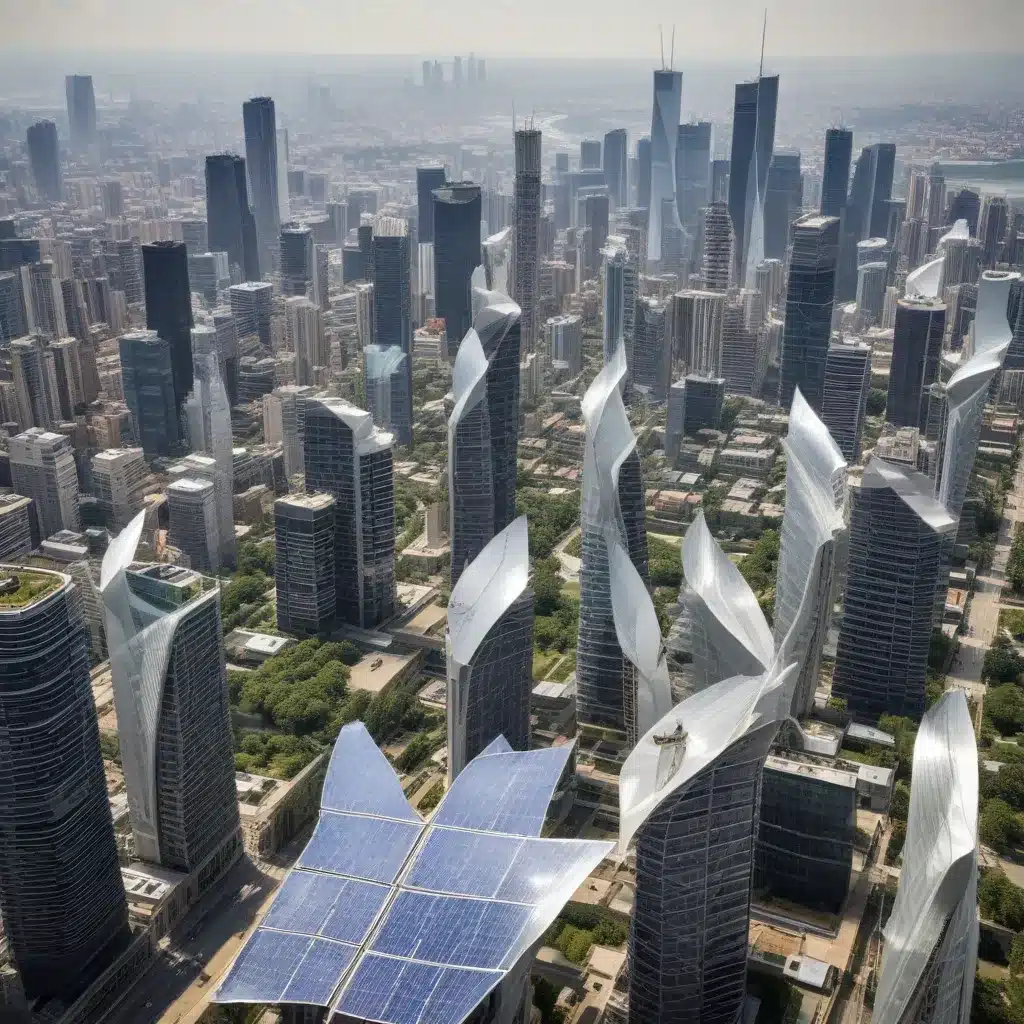
Renewable Energy and Urban Development: Shaping Sustainable Cities of Tomorrow
As the world grapples with the escalating challenges of climate change and rapid urbanization, the role of renewable energy in shaping the sustainable cities of the future has never been more crucial. Europe, a global leader in the clean energy transition, is at the forefront of innovative approaches that seamlessly integrate renewable energy sources, smart infrastructure, and inclusive urban planning to create resilient, energy-efficient, and livable cities.
Sustainable Urban Planning
The integration of renewable energy into urban development is a fundamental pillar of Europe’s vision for sustainable cities. Solar energy, with its ever-improving efficiency and falling costs, has emerged as a prime candidate for powering the cities of tomorrow. Cities across Europe are harnessing the power of the sun through large-scale photovoltaic (PV) systems on rooftops, parking lots, and even integrated into building facades. These net-zero energy buildings not only generate their own clean power but also help mitigate the urban heat island effect, a phenomenon where cities experience higher temperatures due to the prevalence of concrete and asphalt.
Beyond solar, European cities are also embracing the potential of wind energy, with offshore and onshore wind farms strategically positioned to meet the growing energy demands of urban centers. Moreover, the rise of green hydrogen production, leveraging renewable electricity to split water molecules, offers a promising pathway for decarbonizing hard-to-abate sectors like industrial processes and heavy transportation.
To ensure comprehensive and sustainable urban planning, policymakers in Europe are implementing innovative approaches that seamlessly integrate these renewable energy solutions. Urban greening initiatives, such as the expansion of green spaces, urban forests, and rooftop gardens, not only enhance livability but also contribute to the city’s overall energy efficiency by reducing cooling loads and improving microclimate conditions.
Renewable Energy Infrastructure
As cities transition towards a renewable energy-powered future, the development of robust and flexible infrastructure is paramount. Distributed energy generation, where renewable energy sources are located closer to the point of consumption, is gaining traction in European cities. This model enhances grid resilience, reduces transmission losses, and empowers local communities to become active participants in the energy transition.
Complementing this decentralized approach, smart grid technologies play a crucial role in managing the integration of renewable energy into urban energy systems. These advanced grid management systems optimize the flow of electricity, balance supply and demand, and enable the seamless integration of energy storage solutions, such as battery storage and thermal energy storage. This ensures the reliable and efficient utilization of renewable energy, even during periods of intermittent generation.
Sustainable Mobility Solutions
Urban transportation is a significant contributor to greenhouse gas emissions, making it a crucial area for renewable energy integration. European cities are leading the charge in the electrification of transportation, with electric vehicle (EV) charging infrastructure powered by renewable sources becoming increasingly widespread. This shift, coupled with the promotion of intermodal transportation (the use of multiple modes of transport) and urban micromobility solutions (e.g., electric bicycles, scooters), is transforming the way people move within cities, reducing emissions and enhancing urban liveability.
Renewable energy is also playing a pivotal role in powering essential public services. Renewable-powered public buildings, water treatment facilities, and waste management systems are becoming the norm, showcasing Europe’s commitment to sustainable urban development. Furthermore, the integration of renewable energy into urban agriculture initiatives, such as rooftop greenhouses and vertical farms, is contributing to the creation of self-sustaining, climate-resilient cities.
Climate-Resilient Urban Development
As the impacts of climate change intensify, the integration of renewable energy into urban development has become a critical strategy for building climate resilience. Renewable energy sources, such as solar microgrids and wind-powered desalination plants, can provide reliable and decentralized power during extreme weather events, ensuring the continuity of essential services and improving the ability of cities to withstand and recover from climate-related disasters.
Moreover, the design of climate-responsive urban spaces, such as green infrastructure and water-sensitive urban design, leverages renewable energy solutions to enhance the overall sustainability and livability of cities. These innovative approaches not only mitigate the effects of climate change but also promote social equity by ensuring equitable access to renewable energy, affordable housing, and climate-resilient public amenities.
The Future of Renewable-Powered Cities
The future of sustainable cities in Europe is inextricably linked to the continued advancements in renewable energy technologies and their seamless integration into urban planning and infrastructure. Emerging smart city innovations, such as the integration of the Internet of Things (IoT) and artificial intelligence (AI) in energy management, are revolutionizing how cities monitor, optimize, and respond to their energy needs. Additionally, the integration of blockchain technology into renewable energy trading and peer-to-peer energy platforms is empowering citizens to become active participants in the energy transition, fostering a more inclusive and collaborative urban ecosystem.
To realize the vision of renewable-powered cities, Europe is implementing comprehensive policy frameworks and fostering public-private partnerships that align incentives, mobilize financing, and drive innovation. Through inclusive, community-driven approaches to renewable energy planning and the strategic deployment of renewable energy incentives and regulations, European cities are shaping a future where sustainable development, climate resilience, and social equity are the cornerstones of urban transformation.
The transition to renewable energy-powered cities is not merely an aspiration, but a necessity in the face of the global climate crisis and rapid urbanization. Europe’s pioneering efforts in this domain serve as a beacon of hope, inspiring cities around the world to embrace the power of renewable energy and create sustainable, resilient, and livable urban environments for generations to come. As we stand at the cusp of this transformative shift, the future of our cities is inextricably linked to the success of our renewable energy revolution.






